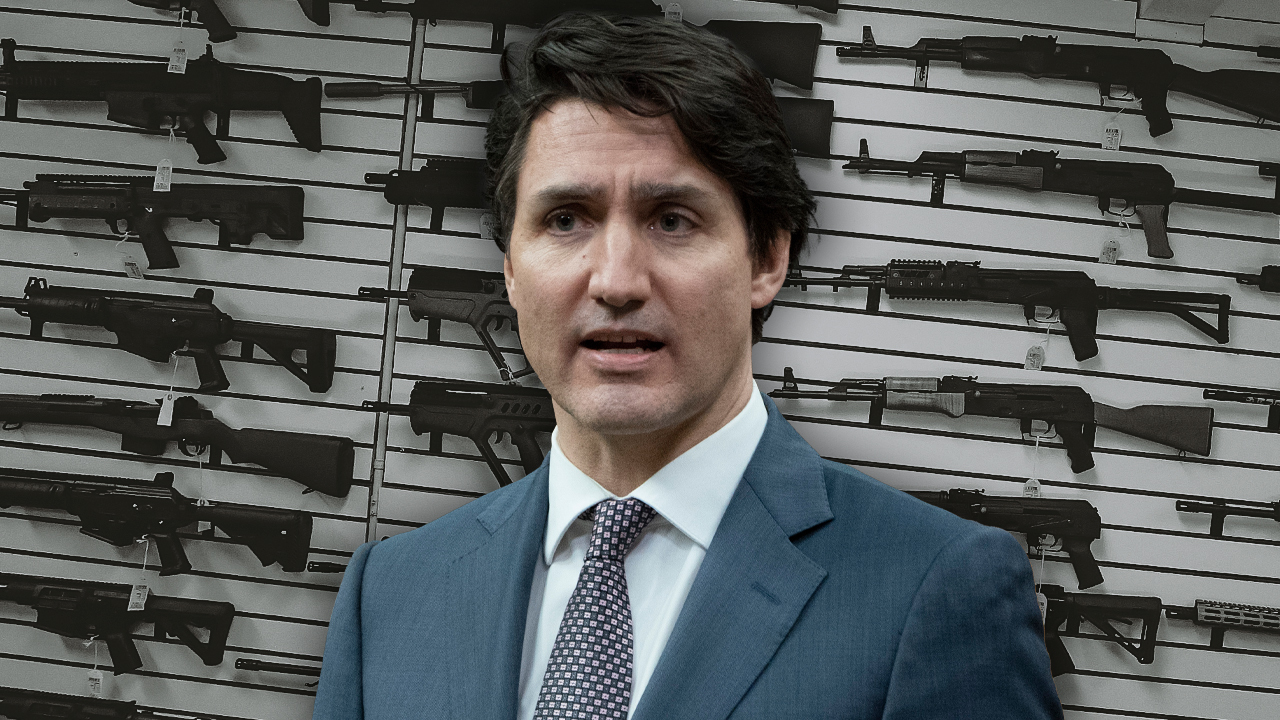Federal data shows no violent gun crimes have received a max sentence under Bill C-21
Simon Fraser University criminologist Gary Mauser describes these penalties as 'rhetorical devices.' He says most provinces rely on negotiated sentencing guidelines determined by lawyers, judges and law societies.

Despite pledging to increase maximum sentences for certain gun crimes, federal data shows Canadian judges have yet to issue a maximum sentence for firearm offences.
The federal government passed Bill C-5 last year, which removed mandatory minimum sentences for some drug, firearms and tobacco-related convictions. They also said clause 14 of Bill C-21 would increase penalties for those convicted of certain firearms offences to reduce violent gun crime.
An order paper question submitted by Simcoe North MP Adam Chambers uncovered that 390 people faced convictions for firearms offences under sections 95, 96, 99, 100 and 103 of the Criminal Code of Canada between 2016 and 2021.
He asked how many offenders received the maximum sentence for these crimes under Bill C-21. Federal records indicate nobody convicted of these crimes during that period received the legislated maximum penalty of 10 years.
Alberta is set to table its long-awaited firearms act on Tuesday in its fight against federal overreach, specifically Ottawa's gun grab.https://t.co/Ofj9QlmdJ7
— Rebel News (@RebelNewsOnline) March 7, 2023
According to Statistics Canada's Integrated Criminal Court Survey, the fiscal year 2018/19 observed the highest number of convictions at 95.
Forty-seven offenders that year were convicted for possession of a prohibited or restricted firearm (sec. 95(2)(a),) one for possession of a weapon obtained by crime (sec. 96(2)(a),) 31 for weapons trafficking (sec. 99,) 12 convicted of possession for the purpose of trafficking (sec. 100,) and four were convicted of knowingly importing or exporting firearms (sec. 103.)
Simon Fraser University criminologist Gary Mauser described these penalties as "rhetorical devices." He said most provinces rely on negotiated sentencing guidelines determined by lawyers, judges and law societies.
"The maximum plays a role, perhaps a pivot, for courts to invent their schedules of penalties."
A Department of Justice brief warned that the maximum penalties could pose a Section 12 Charter challenge, citing "cruel and unusual punishment."
SPONSORED: The C-21 Gun ban G and G46 amendments may have been withdrawn, but the fight for private firearms ownership in Canada is far from over. The facts are on the side of the law-abiding gun owners.
— Rebel News Canada (@RebelNews_CA) February 10, 2023
Join @CanadasNFA at https://t.co/lZDrzg8cop. pic.twitter.com/xcoqdWfe0V
However, the Supreme Court of Canada ruled mandatory minimum sentences do not automatically constitute cruel and unusual punishment in violation of Section 12.
The brief contends Bill C-21 alone is "unlikely" to trigger that because the courts can impose proportionate sentences that are less than the maximum.
"While a disproportionate sentence in an individual case could be corrected on appeal, the validity of the maximum sentencing provision would not be [questioned]," it reads.
The bill undoes mandatory minimum sentences introduced by the previous Conservative government.
WATCH: Justin Trudeau comments on Bill C-21 claiming the incoming Liberal gun law will protect hunters and farmers.
— Rebel News Canada (@RebelNews_CA) January 16, 2023
Do you believe him? Sign our petition at https://t.co/LDDC6DwpJi pic.twitter.com/3pcOAslMNo
Justice Minister David Lametti has said the sentences create "systemic overrepresentation" of Black and Indigenous offenders, adding that mandatory minimum sentences "simply do not work."
Mauser adds that laws promising increased sentences would likely serve as a political tool than a judicial one.
"It is a means to say they're [the government is] taking a tougher stance on crime," he said.
"That way politicians — Conservative as well as Liberal — can make meaningless claims, which they can say 'balances' their approach, even if only parts of the legislation they have any impact on society are bureaucratic restrictions."
Don't Get Censored
Big Tech is censoring us. Sign up so we can always stay in touch.










